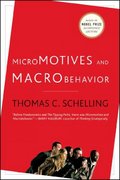Question
Problem 2: Location Choice. The Olympic Committee is deciding where to host their summer event. The Committee is considering two countries: Japan (J) and United
Problem 2: Location Choice. The Olympic Committee is deciding where to host their summer event. The Committee is considering two countries: Japan (J) and United States (U). Demand for the event in Japan is given by PJ (QJ ) = 210 2QJ and demand for the event in United States is given by PU (QU ) = 190 2QU The marginal cost of production in each country is constant at M C = 50. 1. Suppose that countries are not allowed to submit bids to the Committee. a) Calculate the profits in Japan. b) Calculate the profits in United States. c) Which city will the Olympic Committee choose? 2. Assume that cities must offer competing bids to try to host the event. a) If the Committee chooses Japan, what is the consumer surplus (the value)? b) If the Committee chooses United States, what is the consumer surplus (the value)? c) Which country does the Committee choose? What is the winning bid? d) What is the Committee's profits plus winning bid? What is the winning city's value minus winning bid? 3. Suppose that Japan must pay off the local gangsters in order to host the event. In particular, assume that Japan must pay the gangsters 1300 in addition to any bid they submit to the Committee. a) What is the highest amount that Japan would be willing to bid now? b) Which country does the Committee choose now? c) What is the largest payment that the local gangsters can extract? Justify your answer
Step by Step Solution
There are 3 Steps involved in it
Step: 1

Get Instant Access to Expert-Tailored Solutions
See step-by-step solutions with expert insights and AI powered tools for academic success
Step: 2

Step: 3

Ace Your Homework with AI
Get the answers you need in no time with our AI-driven, step-by-step assistance
Get Started


